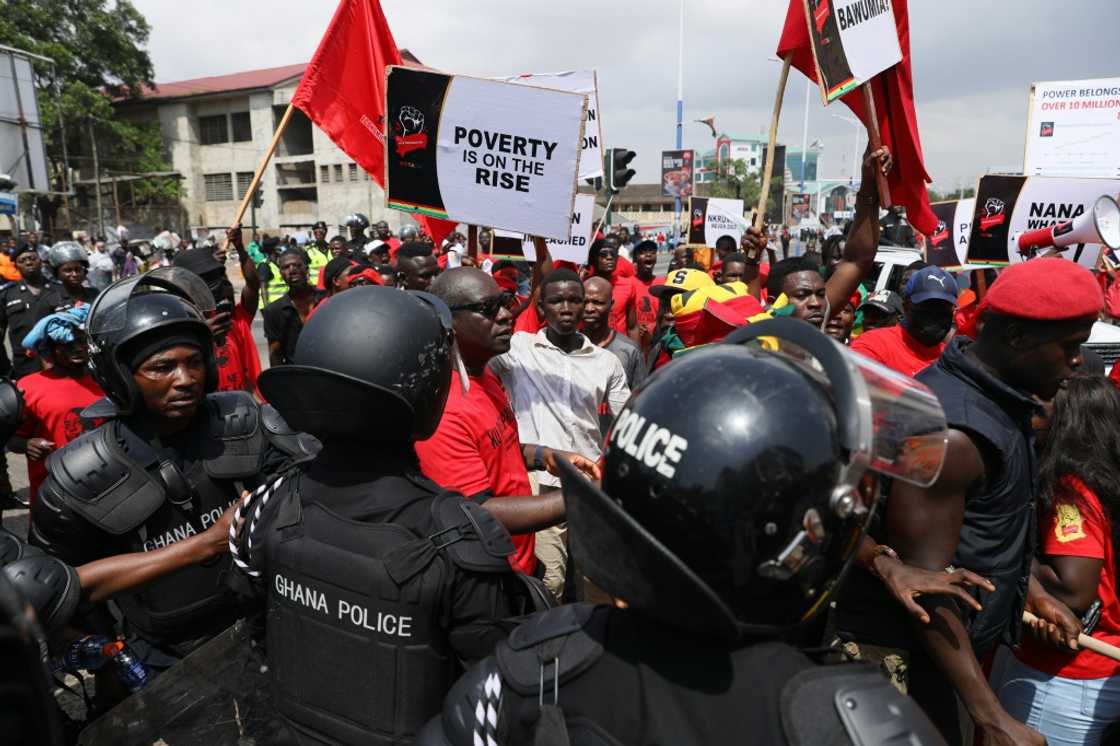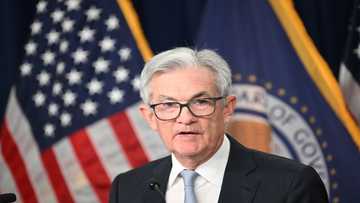Ghana reaches $3 bn deal with IMF

Source: AFP
Ghana on Tuesday agreed on a $3 billion credit deal with the International Monetary Fund as part of the country's battle to end its worst economic crisis in decades.
The West Africa state is facing more than 40 percent inflation, growing debt and a sharp decline in its cedi currency since the start of the year.
The IMF said Ghana's government had committed to "a wide-ranging economic reform program" that will restore stability and debt sustainability.
The three-year IMF loan agreement has yet to be approved by the fund's board.
"Reducing inflation, enhancing resilience to external shocks, and improving market confidence are also important program priorities," the IMF statement said.
A top cocoa and gold producer, Ghana also has oil and gas reserves, but its debt payments have soared and like the rest of sub-Saharan Africa it has been hit hard by fallout from the Covid pandemic and the Ukraine war.
PAY ATTENTION: Follow us on Instagram - get the most important news directly in your favourite app!
The crisis forced President Nana Akufo-Addo's government to reverse its position earlier this year and seek IMF help as economists warned the country risked a default on its debt payments.
The government has already announced a domestic debt swap as part of the programme to ease a crunch in payments and is soon expected to release details about restructuring its foreign debt.
IMF mission chief Stephane Roudet told reporters in Accra, IMF board approval would come after Ghana's creditors give assurances and the debt exchange programme showed progress.
The government has already increased VAT by 2.5 percent and frozen public worker hiring to help trim costs and increase domestic revenues.
Officials say vulnerable groups will be protected, but critics are concerned the government programme will lead to more austerity as it cuts spending.
"Ghana having reached a staff level deal with the IMF is quite good news, although we have yet to get the full details but on the whole, it will facilitate the final approval," Ghanaian economist Daniel Anim Amarteye said.
"The government really needs the bailout to bring about macroeconomic stability and credibility."
Debt payments currently take more than half of government revenues. A 50 percent slide in the cedi against the dollar has also increased Ghana's debt values by $6 billion this year.
Major credit ratings agencies have downgraded their outlook on Ghana, reflecting market worries that the country risked missing debt payments.
The IMF negotiations came after a new tax on the electronic transactions, known as the E-levy, faced resistence and failed to generate expected revenue levels for the government.
New feature: Сheck out news that is picked for YOU ➡️ find “Recommended for you” block on the home page and enjoy!
Source: AFP



